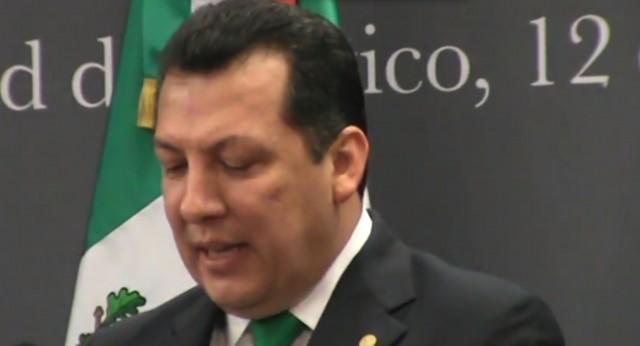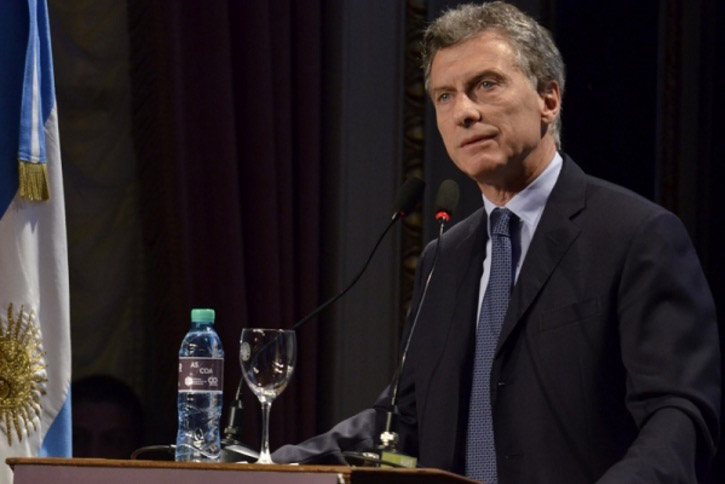
Latin America: Week in Review, Mexico, North America
Pemex Gas Stations Will Face Competition, Symbolizing Energy Reform
April 1, 2016 By Staff
Top Story — Starting today, Mexico will allow private companies to import gasoline, which will effectively open the gas station market, long dominated by the monopoly of state-owned Petróleos Mexicanos, to competition.
The new policy is the latest move away from the Mexican government’s monopoly on the oil sector, but perhaps the most symbolically potent. A report by The New York Times in 2013, after the planned reforms were first announced by President Enrique Peña Nieto, noted that Petróleos Mexicanos, or Pemex, has an unusual national significance in Mexico, where oil rights have long been considered a matter of national sovereignty. As an energy consultant told The Wall Street Journal, “this is absolutely the most visible piece of energy reform.”
Since President Lázaro Cárdenas nationalized the oil sector in 1938, no oil producer aside from Pemex has sold gasoline in Mexico. So far, the U.S. gas station company Gulf has announced it will enter the market, as has a domestic beverage company, which will lease some 300 Pemex stations and rebrand them as Oxxos, a well-known convenience store.
Mexican motorists may welcome the latest phase of energy reform, having contended for years with subpar services and facilities. As both The Wall Street Journal and Financial Times report, customers often complain that gas station attendants do not pump the full amount of gasoline paid for.
Peña Nieto’s reform efforts, already controversial when they were announced, have faced difficulties, like occasionally tepid foreign investment and the collapse in oil prices. The latest phase follows a decision by the ratings agency Moody’s to downgrade Pemex’s credit rating to its lowest-ever level on Thursday. The agency also announced Mexico’s outlook is negative, as the slump in oil prices continues and production remains low.
Headlines from the Western Hemisphere
North America
- As detentions by Mexican authorities of Central American migrants surge to record numbers, authorities appear to be violating the law by failing to inform unaccompanied child migrants of their rights to register as refugees, according to a report by Human Rights Watch released Thursday.
- The New York Times reports on the efforts of Colorado’s health outreach initiative geared toward Latino immigrants, which aims to convince them to trust the tap water in the state.
Caribbean
- In order to alleviate Puerto Rico’s ongoing debt crisis, U.S. lawmakers have drafted a bill proposing to lower the island’s minimum wage, which, according to House Republicans, would make Puerto Rico more competitive compared to its neighbors.
- Puerto Rico’s population has declined by almost seven percent over the past five years and is likely to keep shrinking as more Puerto Ricans emigrate to the United States, a trend that demographics experts say is heightened by the island’s ongoing economic woes.
Central America
- Vice News reports on El Salvador’s struggles to control ongoing gang warfare, with rival gangs offering a truce in exchange for government concessions and the security forces instead cracking down on the gangs’ strongholds in several prisons.
- Honduras’s legislature has approved the creation of an international anti-corruption body, announced earlier this year, a major victory for demonstrators who demanded accountability last year after the revelation of a massive fraud scheme at the country’s Social Security Institute.
Andes
- Colombia’s Ministry of Defense said Thursday that the military will sustain aggressive tactics against the ELN guerrilla group, even as the government announced its plan to engage in peace talks with them the day before.
- The exhumed bodies of 40 Peruvian peasants who were killed in 1991 by the Maoist rebels of the Shining Path have been returned to their families, the justice minister said during a ceremony Thursday, apologizing for the government’s own hand in the violence.
Southern Cone
- Argentina’s transportation minister announced Thursday that train and bus ticket prices in Buenos Aires will double after April 8, when transportation subsidies are cut, the latest austerity policy of President Mauricio Macri. Perhaps signalling the likelihood of protests over the issue, the announcement of the price hike was postponed when demonstrators protesting job cuts blocked access to the Finance Ministry.
- The leader of Brazil’s National Force for Public Security, a national body which will be deployed as part of the security for the Olympic Games, resigned this week, a decision that Brazilian media attribute to conflict with President Dilma Rousseff.
- Brazilian prosecutors have charged billionaire banker Joseph Sakra with corruption, alleging he evaded corporate taxes by giving $4.2 million in bribes to tax officials, which they say they can support with evidence from wiretapped conversations.
- The Brazilian Supreme Court decided Thursday that the corruption investigation into former President Luiz Inácio Lula da Silva will not be overseen by a lower court, sparing the ex-leader from the aggressively anti-corruption judge Sergio Moro, who earned harsh criticism for releasing allegedly illegally-recorded wiretaps involving Lula and Rousseff.
Subscribe to Today in Latin America by Email






1 Comment
Wow. this is a very big deal and will be interesting to watch how Mexicans take to the new options. Americans probably don’t realize how enormous Pemex is and how it extends into everyday life for those who work for the monopoly. From hospitals to schools it’s reach is long and important to Pemex workers. Regardless, I am betting it will be a very long time before the effects are visible to all. If the breakup helps modernize petroleum production and leads to refining then Mexico should benefit in a big way and that is what the administration is hoping for, however all change is extremely slow in Mexico. if I had to bet, I’d say it will be too late. The future is not petroleum and as fas asI know, Mexico has not looked forward to the other options to the extent it should have to really lift itself into the future.
Comments are closed.